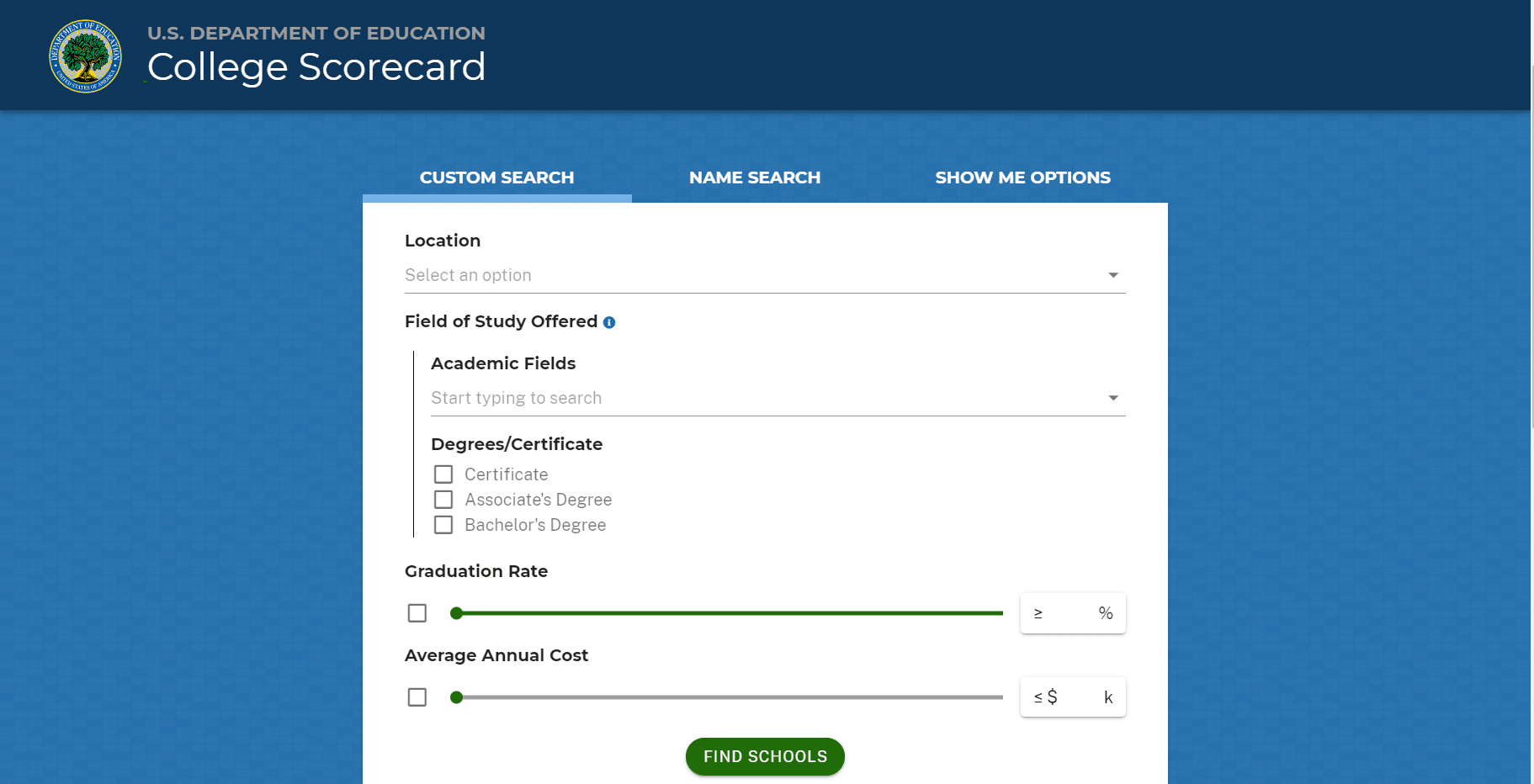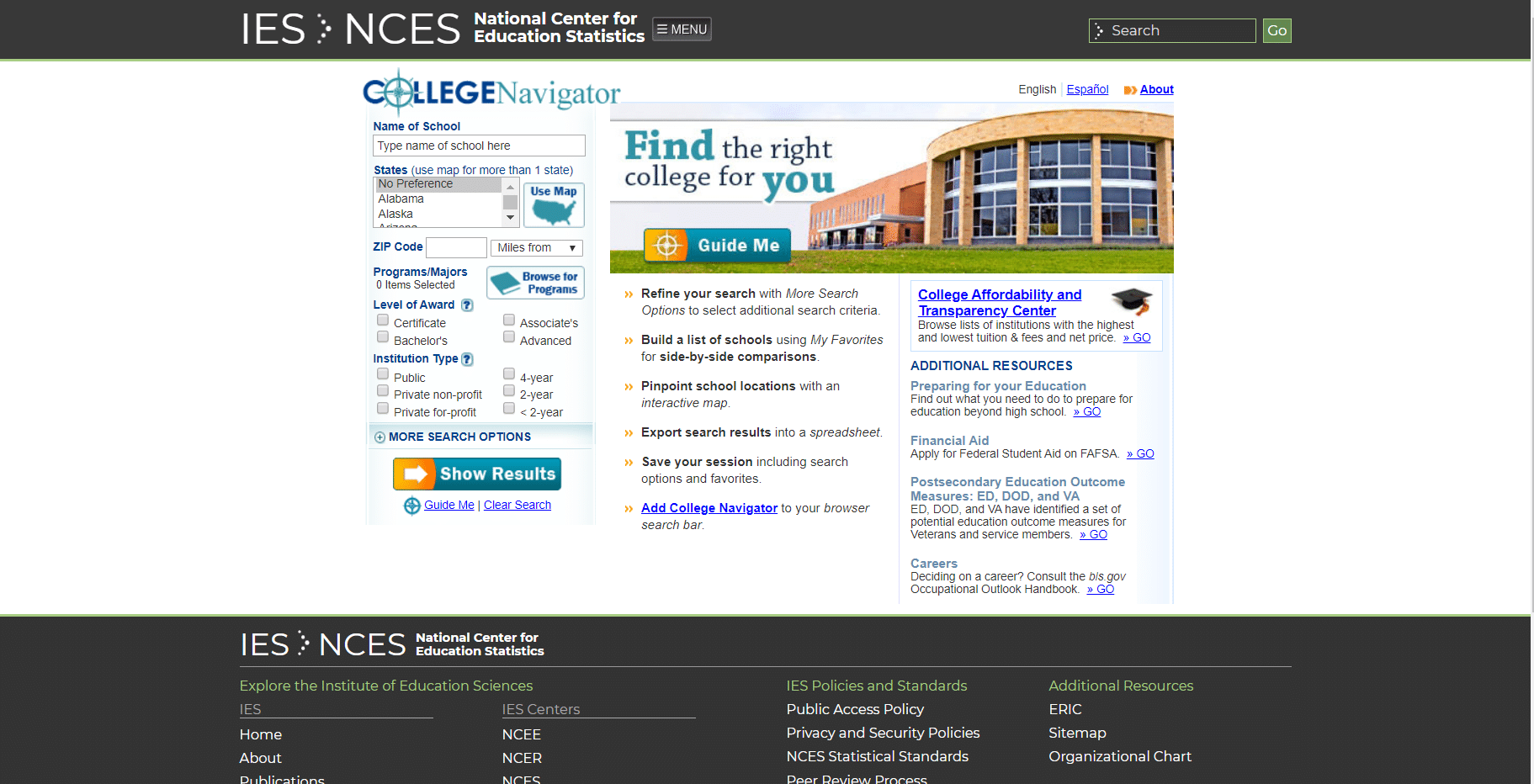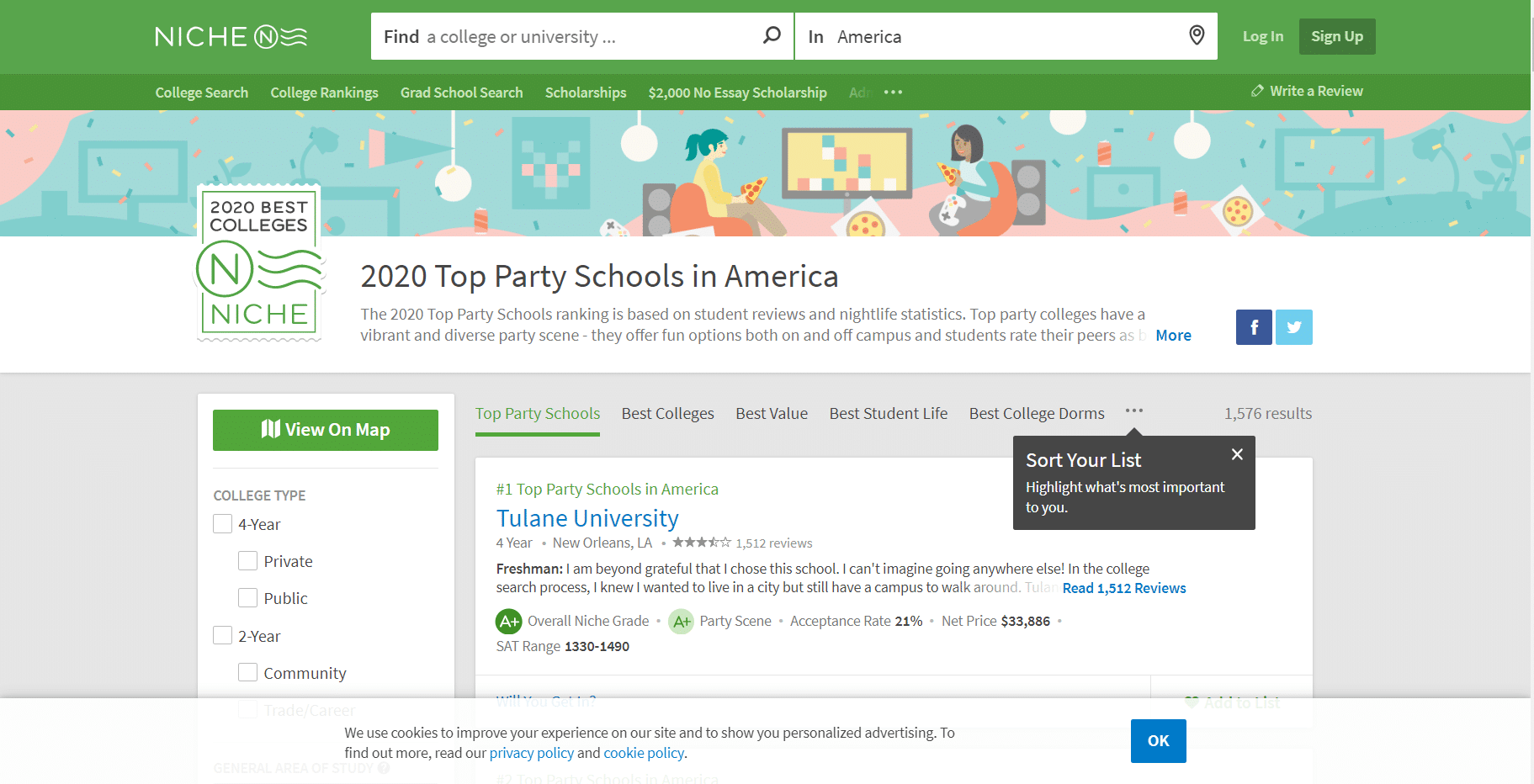
Gearing up to go to college can be the journey that takes months to years.
Should you attend an in-state or out-of-state school?
Does the school you’ve wanted to go to since elementary school have the program you’d like to study?
Do they have a graduate school you’d like to attend?
Can you afford it? Are there scholarships? Will your SAT or ACT scores get you into the school of your choice?
If you’re applying to college, then chances are you’re thinking about all these questions.
Enter college comparison sites. Which ones give you the answers you’re looking for in a straightforward manner?
In this post, we’ll cover the best tools to compare colleges as of this writing. All of the tools on this list will help you research your options for two-year and four-year colleges as well as graduate and professional schools.
Plus, make sure you check out our massive guide on How To Pay For College >>
CollegeSimply
CollegeSimply allows you to enter your GPA, SAT, and ACT scores and based on those they give you recommendations on schools you can get into when you apply.
They also categorize schools by state, application deadlines, the most selective, and the least selective so you can make choices that suit you.
College Scorecard

College Scorecard is a website run by the United States Department of Education. They have a very simple interface that allows you to enter your zip code or the state you want to attend school in.
After that, you can enter your desired major and use a sliding scale to select a tuition range. Once you put in these parameters, the scorecard will give you results of the schools you should apply to, including how much you can expect to make with the type of degree you put in.
BigFuture by the College Board
The College Board has long been the go-to resource for college information and comparison.
They now have a tool called BigFuture which allows you to compare colleges, investigate how much you’ll need to pay for a college degree, find the best school for what you want to major in, get predictions on what you can make with your major, as well as learn how to get financial aid and scholarships for school.
By far, it’s one of the most comprehensive college comparison tools on this list.
To use BigFuture, you will have to create a free account on the College Board website.
College Navigator

College Navigator is a college research tool by the National Center for Education Statistics.
It’s a simple tool that allows you to research schools by state, whether it is two-year or four-year, public or private. Based on what you put in, you get a list of results that can craft your decision.
Cappex
Need a tool that has information on $11 billion in scholarships across 4,000 different colleges? Cappex is the tool that will help you do that.
If you intend on using scholarships to reduce (or completely avoid) student loan debt, this is the tool to check out.
As an added bonus, you can partner with an admissions advisor on Cappex to help you navigate the college and scholarship application process. You can even get help with essays that could land you in the college of your dreams.
Chegg
Chegg is a popular website for renting and buying textbooks at discount prices.
But did you know they also have a tool that allows you to research over 25,000 scholarships?
You get deadlines, scholarship amounts, and what your GPA needs to be to apply for the scholarship.
You can also use Chegg to research over 6,000 colleges and universities.
Niche

Niche’s college rankings gives you rankings based on the state, major, and campus life. And so, if you want to attend a college based on the party life or Greek culture, you can find that on Niche.
And get this: the rankings that have to do with campus life are given by students attending the school. So if you wanted to gain insight from real students like you, this would be the tool to use in your research.
Niche can give you information on the best community colleges to attend as well.
College Confidential
Apart from using this tool to compare colleges, College Confidential has student forums and student ratings of schools.
If you wanted to chat with people at specific schools, you can join the forums on College Confidential and find out all you need to know.
Unigo
Unigo is another college comparison tool that follows the suit of many of the tools already on this list.
A unique feature of Unigo, however, is that they have 14 scholarships you can apply for directly on their website. You can win up to $10,000 in scholarship money for school.
That alone makes it worth it to check out.
Peterson’s
The college comparison tool at Peterson’s is another great tool to consider in your college search.
If you plan on going through an internship or co-op while in college, Peterson’s can help you find one of those too.
The Princeton Review
The Princeton Review is well known for helping millions of students study for standardized tests of all sorts.
It also has a powerful college comparison and research tool to help you find the school that suits your needs.
U.S. News College Compass
College Compass is a tool by the popular rankings website, U.S. News & World Report. You will have to create an account to use College Compass.
Once you do, you will be able to filter through over 1,900 institutions based on your test scores, clubs and organizations, college size, and much more.
Best College Reviews
On their website, Best College Reviews says, “We focus our rankings on online college programs. We do this with the understanding that not all students thrive within a traditional institution, and that some may learn better under the conditions of electronic education. It is our firm belief that online programs provide a hereto unexplored avenue to success.”
So if you would rather enroll in an online college program, this tool is for you.
Did you find this post helpful? Are you using any of these tools in your research right now? Let us know in the comments below.

Robert Farrington is America’s Millennial Money Expert® and America’s Student Loan Debt Expert™, and the founder of The College Investor, a personal finance site dedicated to helping millennials escape student loan debt to start investing and building wealth for the future. You can learn more about him on the About Page or on his personal site RobertFarrington.com.
He regularly writes about investing, student loan debt, and general personal finance topics geared toward anyone wanting to earn more, get out of debt, and start building wealth for the future.
He has been quoted in major publications, including the New York Times, Wall Street Journal, Washington Post, ABC, NBC, Today, and more. He is also a regular contributor to Forbes.
